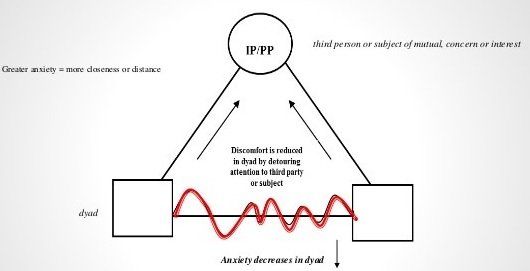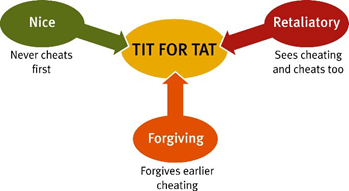How Family Systems Theory Can Relate to Workplace Dynamics
How Family Systems Theory Can Relate to Workplace Dynamics

We have often heard that the workplace is like ‘a second family’, usually with positive connotations of belonging, security, and communication. Indeed, it has been my observation over the 20+ years of working in many different cultures that people bring their family dynamics to their workplace – including their preferred position within the family, approach to solving conflict, and expectations for closeness or distance in relationships.
However, I always thought this was an empirical observation, until I recently discovered Dr Murray Bowen’s Family Systems Theory. Originally developed in the 1950’s America, the theory has since evolved into a school of thought and has formed the basis of family therapy. It has a few fundamental principles that I think make it relevant not only to modern-day family units but also to workplace ‘families’, and, possibly, societies:
1. Dr Bowen tells us that a dyad (couple) is inherently an unstable relationship because the two people pour an inordinate amount of attention into one another, and thus, the highs and lows of their everyday experiences are amplified. Bowen’s preferred term for this is ‘chronic anxiety’, which seems a bit negative to me, though we can all relate to it.
2. The minimally stable structure is therefore the triangle – just as a minimally stable chair has to have three legs. This had also been my lifetime observation as an adult, though I did not express it as it runs against the society norms for what an ‘ideal relationship’ should look like. When anxiety increases in a dyad, Bowen says, people’s natural mechanism is to ‘triangle in’ a third party – usually a child in the family system.
This is a phenomenon I’ve often seen in the corporate culture, and I even intuitively referred to using the word ‘triangle’ in a discussion with a line manager once.
3. While triangles cannot be avoided and are not all unhealthy – sometimes the only solution to a conflict is bringing in a third party, a supervisor or an informal mediator – it is our task to ‘de-triangle’ ourselves as much as we can and try to solve our conflicts one-to-one. It is what Bowen calls ‘differentiation’, a hallmark of mental and emotional maturity. To demonstrate his theory, Bowen went to great lengths to ‘de-triangle’ himself from his parents by refusing to participate in the family gossip, an amusingly impossible task in my experience.
4. Differentiation is no easy endeavour, and my main issue with most corporate cultures is that they actively discourage it. One has to adopt the ‘company values’ (or, most often, pretend to adopt them) to be accepted. In families, especially in the more dysfunctional ones, we see how the child who has different opinions gets labelled as the ‘rebellious child’, ‘the odd one out’, or, in toxic corporate environments, becomes ‘the problem employee’. This person is either medicalised and coined a diagnosis (a therapist may be triangled in as part of the process), or labelled ‘incompetent’, ‘morally bankrupt’, etc, and eventually ostracised as a scapegoat.
5. Scapegoating is an ancient mechanism with biblical rather than Bowenian origins but it tells us so much about the constancy of the human psyche over centuries: the community channels all their insecurities and fears (‘anxieties’) into one recipient of their projected ‘dark side’, who is then cast away so the members can return to the status quo without having examined themselves for one second.
Think this is all too esoteric to have any current relevance? Examine today’s political scene and you will see triangles, projections and scapegoating in full action.
6. In the family systems theory, this phenomenon is labelled ‘family projection’. I believe that every person who is aiming to grow should experience this position at least once in their life, as non-enviable as it sounds. Not in childhood, as it is extremely disempowering and deleterious to the personality, leaving it with permanent scars, and not in old age either, as it can lead to irreparable despair, but some time in-between. I was fortunate to have experienced it once or twice at a time I could handle it, and am all the stronger for it.
We should also experience the opposite position, that of the ‘favourite child’, or ‘star performer’. It is good for the ego in moderate doses. But staying stuck in this position, even though advantageous on the surface, comes with a great risk of ‘un-differentiation’, or, in my understanding, not growing a healthy sense of self, as we are too dependent on outward approval to make our own judgements and decisions.
5. I would argue that differentiation is also helped by acquiring the capacity to move from one position in the system to another without experiencing a great deal of distress. This flexibility can help lower long-term anxiety and increase self-efficacy in an individual – however, this is my personal opinion and not Bowen’s.
Having said that, one position I did not experience, and find myself yearning for, is that of the ‘overlooked child’. Growing up, I had a fair amount of positive attention from my family, school system and so on, though sometimes I was ‘problematic’ in class when I stood up or spoke up.
The overlooked child (often the middle one) is not given proper attention in their formative years, which they rightfully resent. I nevertheless see a positive spin to it: having received less pressure and anxiety, they get more breathing space and the opportunity to individuate. Grown up, these children can become the ‘observers’ or ‘free thinkers’ of societies. Not easily triangled or caught up in emotional dramas, observers connect the dots and spot patterns in human behaviour, leading to theories such as Bowen’s.
6. How did I carve out more space and less attention (or anxiety) for myself? By taking distance, putting placeholders and boundaries in my work, and making use of my newly-found time to learn and think, and channel this thinking into other enterprises, such as coaching. Later on, I may return to one system or another – but not yet.
7. Would I advise this course for others? Not at all! True
to the principle of differentiation, people should follow their natural
inclination – not the one their family has imprinted on them! – and see where
it takes them. Once in alignment with where they want to be, some shine as the responsible,
mature team leaders, deservedly attracting their peers’ praise. Others become
the innovators and crisis managers regarded with respect rather than contempt …
and yet others take pride and delight in their independence, acquired through a
lifetime of hard, introspective work.







